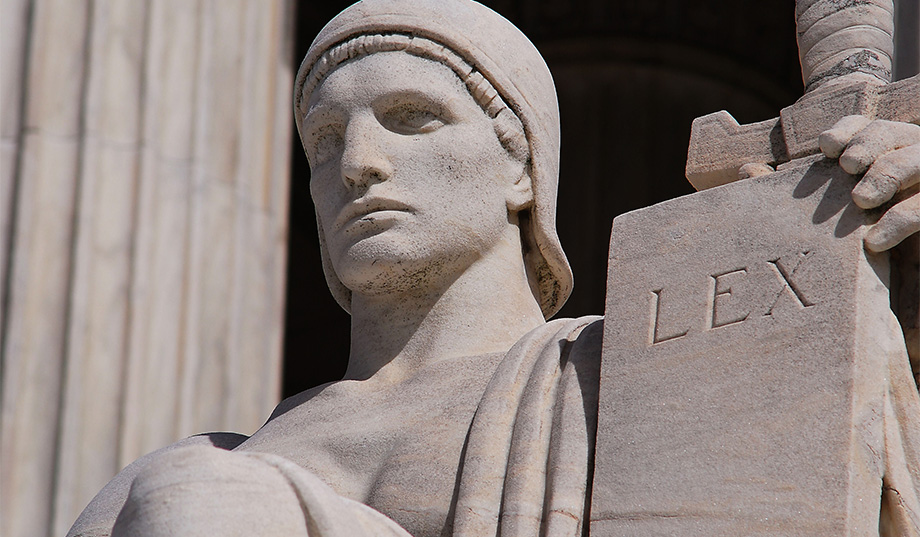Archive for January, 2018
Talking Down the Dollar
Posted by Joshua Sharf in Uncategorized on January 25th, 2018
 The dollar has been weakening over the last year. I tend to like a strong dollar, so I don’t like to see the President or the Treasury Secretary talking the dollar down, as the expression goes. I understand the impetus – it makes exports easier, which should help employment. But of course, you’re also being paid in depreciated dollars.
The dollar has been weakening over the last year. I tend to like a strong dollar, so I don’t like to see the President or the Treasury Secretary talking the dollar down, as the expression goes. I understand the impetus – it makes exports easier, which should help employment. But of course, you’re also being paid in depreciated dollars. Some Short History Reading Lists
Posted by Joshua Sharf in Civil War, Cold War, Constitution, History, Revolutionary War on January 21st, 2018

We were over at a friend’s house for lunch this Shabbat. Knowing that 1) I have a lot of history books, and 2) I tend to read them, he was kind enough to ask me for some reading lists about the Revolutionary War, the Civil War, and the Cold War. “I haven’t had much luck with fiction, so I’m trying to round out my history.”
Here’s what I sent him. These aren’t intended to be college syllabuses, or comprehensive. They’re books that I have and leafed through, or that I’ve read. I’ve tried to vary them by author. I could have had the entire Revolutionary War list by Joseph Ellis, the whole Civil War list by Bruce Catton, but what’s the fun in that? My library, while large by 19th Century standards, is limited by the size of the house. Had I fewer books, I would paradoxically have more room for them. But it’s a good list, enough to cover some key points, get an overview, or just when your appetite for more.
American Revolution
For a decent overview of the war as a whole, Liberty by Thomas Fleming isn’t bad. I think it was originally written as a companion book to a PBS series, but it’s good in its own right. For a deeper examination of the issues around the Revolution and the war, and how the Founders handled them, American Creation by Joseph Ellis is recommended.
We all know of Washington Crossing the Delaware; David Hackett Fischer has written a great in-depth review of the events surrounding that crossing and subsequent battles, and how they set the stage for the rest of the war, in Washington’s Crossing.
And for well-researched discussions of adoption of the two primary founding documents – the Declaration and the Constitution, Pauline Maier’s American Scripture and Ratification give surprising insights into what people were thinking at the time.
The Founders lived on into the post-Revolutionary era, and had a second act right after the Constitution in 1787, so some bios are in order. Richard Brookheiser’s short Founding Father is a fine thumbnail bio of Washington; for something longer Ron Chernow has bios of both Washington and Hamilton. And David McCullough’s John Adams is what the PBS series was based on.
Having come this far, read about 700+ pages about the early Republic, when were getting ourselves established, with Gordon Wood’s Empire of Liberty. I’m reading it now, and pretty much every chapter has some surprise or another.
Civil War
For the lead-up to the war, and how we got to the point of secession and war, William Freehling’s long, two-volume The Road to Disunion is among the best.
Much of the same material is covered in the first volume of Bruce Catton’s very readable and shorter three-volume Centennial History of the Civil War. These are The Coming Fury, Terrible Swift Sword, and Never Call Retreat. I would recommend anything written by Catton on the Civil War.
Also excellent is Battle Cry of Freedom by James McPherson. As a guide to Lincoln’s war, what the events looked like from DC, Doris Kearns Goodwin’s Team of Rivals is magnificent.
Cold War
This one is tougher, because it covers decades, not mere years, so the politics, military, and technology changed substantially from 1948 to 1989. I’ve picked out the books I have and have read that do a good job talking about the Cold War. My library is heavier on the spy stuff, but there was a lot of spy stuff.
Witness by Whittaker Chambers is indispensable. He starts out as a Communist, and then converts over to the good guys, and was a key player in one of the great Cold War controversies, the Alger Hiss case. Nixon’s rise to prominence began with this case, and the left never forgave him for being right.
The Great Terror, is one of the best books about Stalin’s Russia, by one of the best chroniclers of the 20th Century, Robert Conquest.
The Gulag Archipelago by Solzhenitsyn is recognized as the best insider account of the Soviet punishment system.
Berlin 1961 by Frederick Kempe covers the building of the Berlin Wall.
Merchants of Treason by my friend Norman Polmar and KGB: The Secret Work of Soviet Secret Agents are old now, but a good guide to how to the KGB operated in the day, and how the Russians still operate today.
There’s also a vast literature of spy fiction, from Len Deighton’s devastating Game-Set-Match trilogy to John LeCarre’s oeuvre (start with Tinker, Tailor, Soldier, Spy).
That’s enough to keep you busy for a few years. So what are you still doing on this page?
DACA and the Courts
Posted by Joshua Sharf in Immigration, National Politics on January 11th, 2018

Two days ago, a 9th Circuit federal judge in San Francisco blocked the Trump Administration’s reversal of Obama’s DACA, the program under which illegal aliens brought here as children could register, in return for a suspension of enforcement of immigration law. He did so with a decision that, as Josh Blackman puts it, reads like bad punditry, bereft of any legal reasoning or precedent.
On the Twitters, the pseudonymous “Thomas H Crown” explains in an 800-word thread what got us here, why this sort of ruling both stems from and feeds a deeper civic rot.
So a judge begins with the proposition that an executive order is lawfully entered; executive orders by definition lie entirely in the discretion of the Executive and may be withdrawn or advanced at his sole discretion; and concluded withdrawing it may be illegal.
The problem with our system of government right now is diffuse responsibility and a categorical unwillingness by the legitimately-enumerated-and-responsible actors to retake their power and responsibility.
The judiciary has absolutely no power to order the Executive to retain a program the Executive created ex nihilo and contrary to the express terms of a lawfully-enacted, Constitutional statute.
The Executive should be aggrieved because its power is being summarily denied by a Branch with no rule/law-making power of its own; its power is (theoretically) limited to derivative lawmaking based on other Branches’ acts.
The Legislature should be absolutely losing its poop because (1) its power was wrongfully grabbed by the Executive at the start and (2) now that the Executive is backing down, the Judiciary is grabbing the mantle in its place.
Elementary civics teaches that the Constitution creates checks and balances, i.e., no one branch can become more powerful than any other because each has a power to negate the one taking its authority; and two beat one.
Elementary civics also teaches that Congress has the power, under extraordinary circumstances, to rip the other branches to shreds, by impeachment and by defunding their day-to-day operations (but not Article III’s salaries).
But this arrangement is a dead letter.
Instead, here, roughly, is our system.
Congress passes laws sometimes and sometimes not, and passes budgets sometimes and sometimes not, but never actually exercises the power of the purse over anything.
Impeachment, because of its uneven execution on the Executive, is considered a nuclear device, and even in the face of clear lawbreaking and arrogation of power is at best a toss of slightly-loaded dice.
The bulk of lawmaking is actually done by the Executive, by a facially unconstitutional delegation of authority of that power by Congress almost a century ago that most people now take for granted.
When the Executive makes laws/novel interpretations completely outside the text/creates whole new programs, Congress races to fundraise off it. Sometimes, it asks the third branch to say the second is naughty.
The judiciary makes new Constitutional amendments, something it’s really not qualified to do (lawyers know our own), occasionally orders the Executive to change its interpretation of a law to what the judiciary wants, and now runs illegal Executive programs.
Instead of ordering up a round of impeachments or at least informing the judiciary that its electric, gas, water, rent, etc., bills won’t be paid any more, Congress races to fundraise.
Instead of telling the judiciary it can enforce its own damned laws (BUT THE MARSHAL OF THE SUPREME COURT) if it wants to be the Executive, the Executive asks the judiciary to please reconsider. Please.
So instead of Article I — the first and most expansive — being primus inter pares, which is necessary for effective small-r republican governance, or Article II, which is at least elected, the system is totally inverted and no one changes it.
The system is now designed to funnel power to the only unelected — and therefore least-inclined to republican responsibility — branch, then the second-least responsible, and leave the most electorally-responsible one the one with the least power.
In times of economic downturn or uncertainty, direct stimulus to the humans does not lead to increased spending. They instead disproportionately use it to pay down debt or accrue savings (same thing).
This is because the humans are surprisingly cannier than the people they elect to govern them.
The effects are fairly straightforward: Increased voter apathy, lower turnout for elections in which only Congress is in play, and increased energy and commitment to the outcome of the only elected branch where real decisions are made.
In other words, the humans can tell that there’s no point in caring too too much about Congress, as it’s an ATM with occasional fits of lawmaking, and a great deal of reason to care about the Executive, the source (more or less) of judges and only meaningful elected office.
It’s an unpleasant feedback loop, as this only encourages the same mess that caused that behavior in the first place.
Worse, the incentives the Founders identified in the elected officials were way and totally wrong. In Congress, they don’t care about power, they care about prestige, the appearance of power, and wealth.
They have no incentive to check the Executive or Judiciary because if what they do doesn’t make vox populi roar with approval, their incentives could be endangered.
The people care that they feel like they have a responsive system, regardless of the accuracy of this feeling, and have a king/champion and wise philosopher bench to guide them.
If you care about republican governance, this is a truly hideous state of affairs.
Most people don’t.
People have been fixated on the dangers of getting used to Trump’s unusual behavior for a president. Getting used to this kind of “because I said so” jurisprudence strikes me as just as dangerous. Hamilton wrote that the judiciary would be the weakest branch, and that judges would be afraid of getting so far out of line for fear of being impeached. This is the kind of ruling that begins to make impeachment look plausible.
PERA Forum
Posted by Joshua Sharf in PERA on January 10th, 2018

On December 20th of last year, the South Metro Denver Chamber of Commerce hosted a forum on the future of Colorado’s deeply troubled public pensions, the Public Employees Retirement Association, or PERA.
PERA’s been in trouble for a while, but it only noticed how much trouble it was in late in 2016 when it adopted new mortality tables an a slightly less unrealistic estimate of its long-term rate of return. Since then, it’s been frantically trying to salvage the current defined benefit plan. PERA has a legislative proposal to tighten up COLAs, slightly increase the retirement age, increase contributions, and tighten up some loopholes in the benefit calculation formula. Governor Hickenlooper has released a plan of his own, similar to PERA’s with a few tweaks.
Independence Institute and I think the long-term solution needs to be more sweeping – a cutoff of the traditional pension plan for new members, and even providing the option for existing members to transfer into a new, 401(k)-style defined contribution plan. This won’t get rid of the massive, $80 billion unfunded liability, but it will keep it from getting any worse, and it will take the investment risk off the shoulders of the rest of the state and put it where it belongs, on the shoulders of the employees themselves.
The panel featured PERA’s interim Executive Direction Ron Baker, Amy Slothower representing the pro-reform Secure Futures Colorado, and Lynnea Hansen of the pro-PERA Secure PERA lobbying group, and me. It was moderated by State Senator Jack Tate (R-Arapahoe).
Here’s the audio from the event:
As you can see, things got most heated around the discussion of the composition and responsibilities of PERA’s Board of Trustees. Ron claimed the PERA’s Board was responsible for managing the money and administering the plan. That’s true, but as I point out, it’s far too modest. PERA’s Board also lobbies the legislature, posing as a disinterested unbiased source of information, but in fact opposing almost all interim reform proposals, including some that are now part of its proposed slate of reforms.



